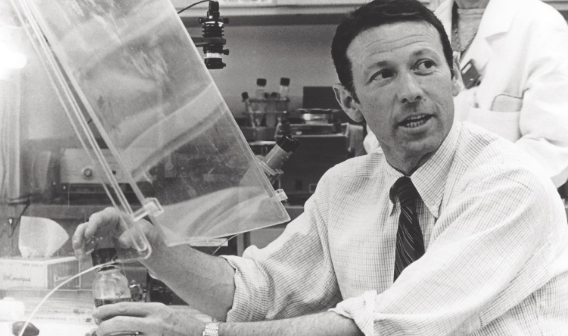Nobel prize winner & recombinant DNA discoverer Dr Paul Berg passes away
February 20, 2023 | Monday | News
In 1971, Dr Berg’s landmark gene-splicing experiment opened the door to the invention of recombinant-DNA technology
image credit- sciencehistory.org
Dr Paul Berg, an American biochemist whose development of recombinant DNA technique won him a share (with Walter Gilbert and Frederick Sanger) of the Nobel Prize for Chemistry in 1980, died at the age of 96 on 15th February 2023.
Dr Berg’s gene-splicing experiment resulted in the first man-made recombinant DNA (rDNA), as such molecules came to be called.
As chair of the National Academy of Science’s Committee on rDNA molecules, Dr Berg played an active role in the debate among scientists and with the public about potential limitations on such research. In the 1970s the National Institutes of Health issued guidelines for the safe conduct of rDNA research. Over time these guidelines have been eased, as more experience has shown the hazards to be far less than imagined.
Dr Berg’s later research at Stanford focused on the mechanism of repairing DNA damage, and he continued to influence federal policy regarding stem-cell research, biotechnology, and human cloning.
In 2005 Paul Berg received the Biotechnology Heritage Award from the Chemical Heritage Foundation, now the Science History Institute, and the Biotechnology Innovation Organization. The honour was given in recognition of his pioneering work in gene splicing, one of the foundations of biotechnology; the award also recognised his work in teaching and medical research and as a leader who helped lay the ethical foundations of the biotechnology enterprise. He also was awarded the 2008 American Institute of Chemists Gold Medal.









